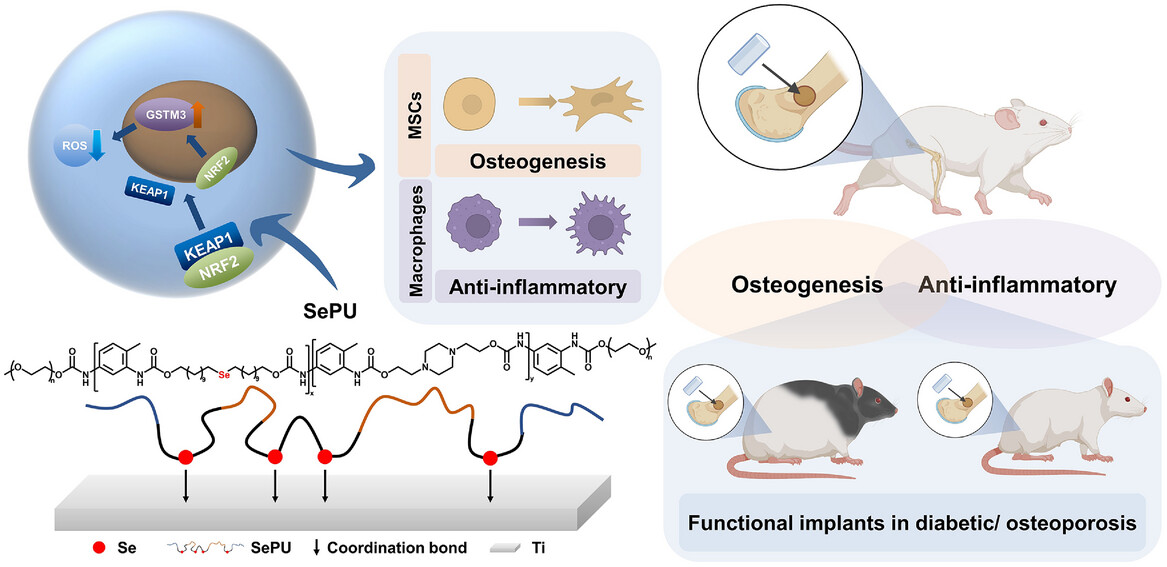Mo Zhai, Banruo Xianyu, Honglin Zhang, Xiaoqiang Bai, Yang Fu, Zhuqing Wan, Wenke Zhang, Huaping Xu*, Yongsheng Zhou*, Longwei Lv*
Adv. Funct. Mater. 2025: e14534.
Titanium implants, although widely used in clinical applications, are still facing challenges of inflammation and compromised osseointegration, especially in diabetic and osteoporotic patients. Existing titanium modification techniques are confronted with problems of complicated manufacturing processes, poor bonding strength, and difficulties in dual regulation of immunity and osteogenesis. Here, a selenium-containing polyurethane (SePU) is synthesized and modified the titanium surface with SePU via a convenient soaking method. Notably, SePU formed a coordination bond with Ti, induced M2 polarization of macrophages, promoted osteogenic differentiation, inhibited osteoclast formation, and enhanced peri-implant bone formation in diabetic and osteoporotic rats. Tissue RNA-sequencing and validation reveal SePU regulated NRF2-mediated oxidative stress by upregulating GSTM3, enhancing ROS scavenging, reducing oxidative damage, thus creating a pro-regenerative immune microenvironment. These findings provide a novel approach using the essential element selenium to solve intractable clinical bottlenecks of titanium implants, especially for systemic backgrounds unfavorable to osteogenesis, such as diabetes and osteoporosis.

